Sara Bichão & Violaine Lochu
Nomad residencie #3
A traveling residency, through stages of journey and at the heart of unique contexts
São Miguel Ouessant - sémaphore du Créac'h
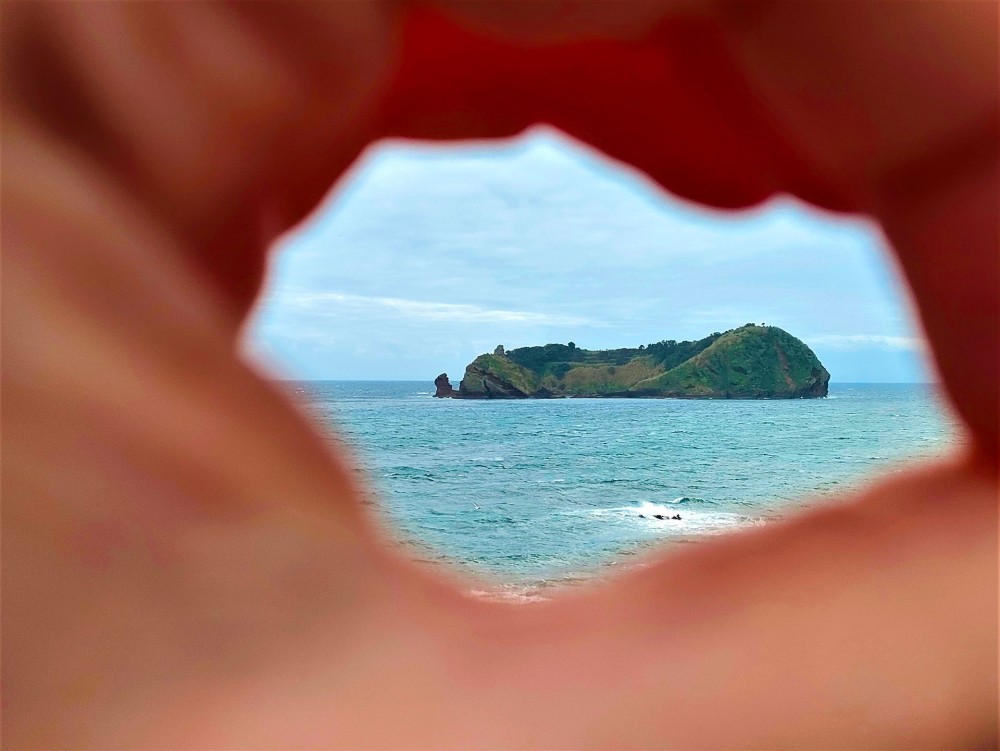
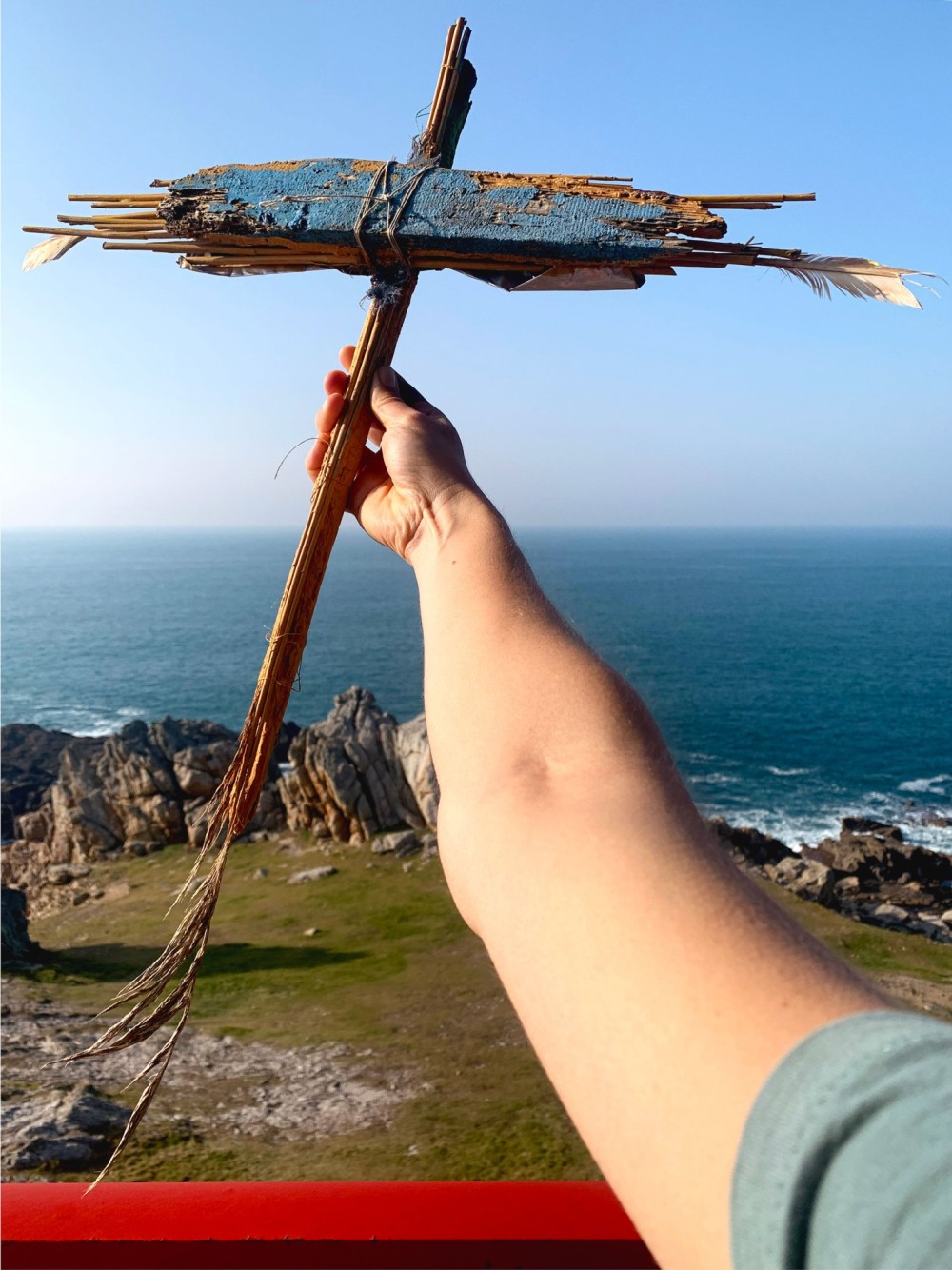
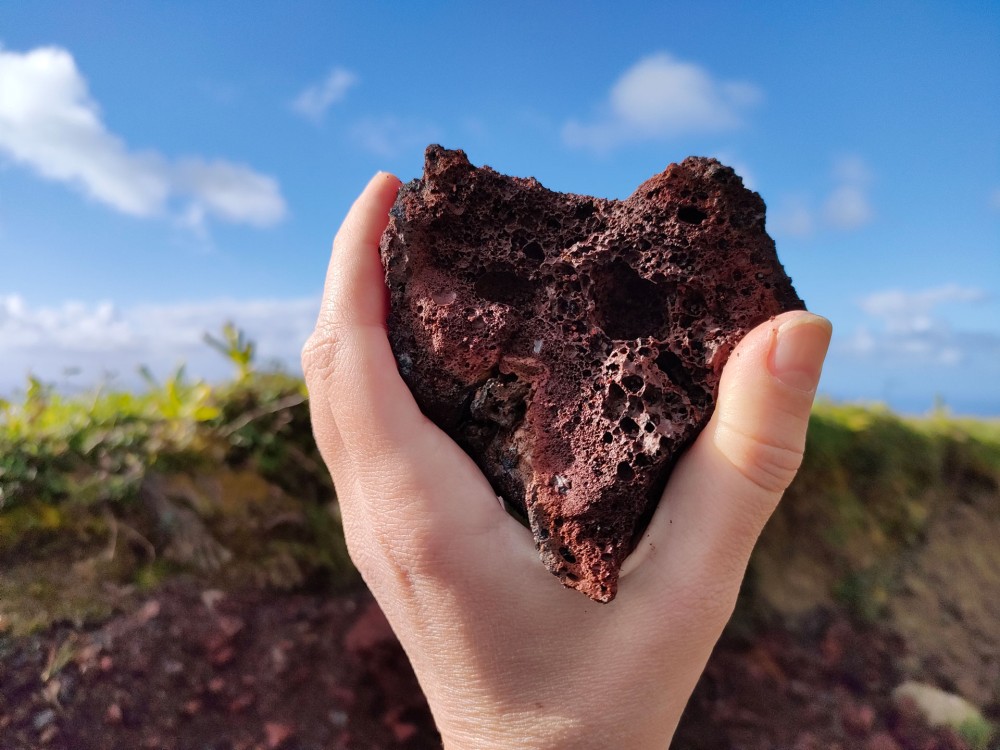
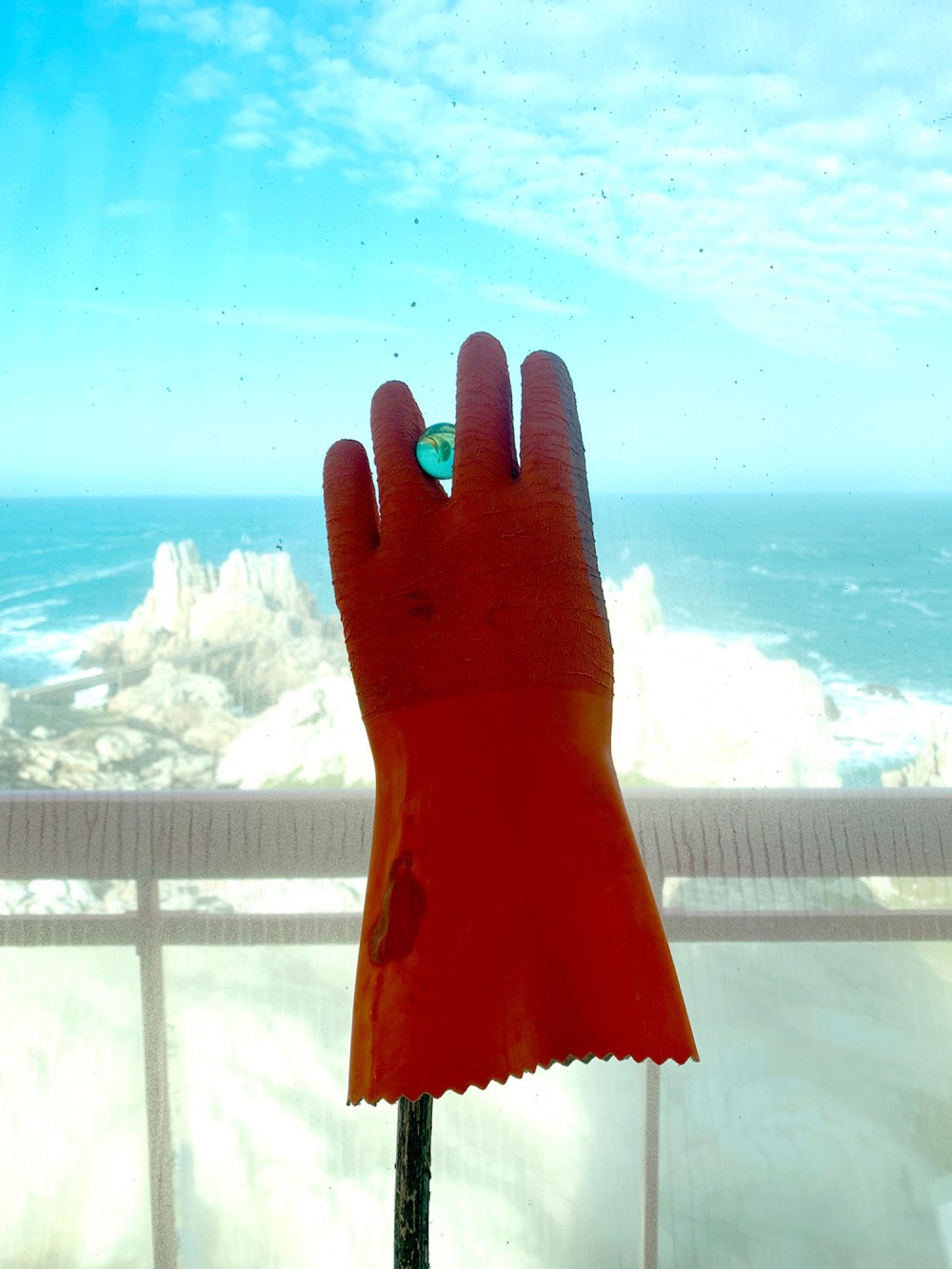

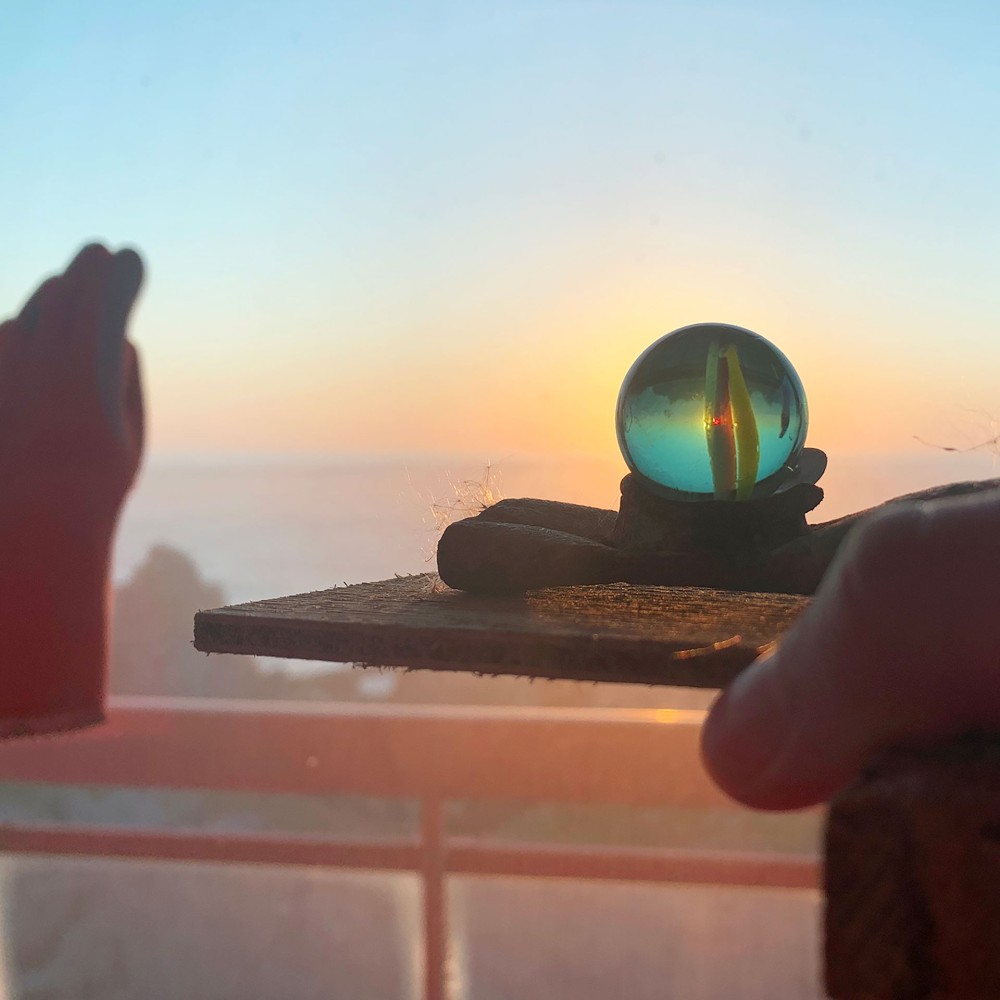
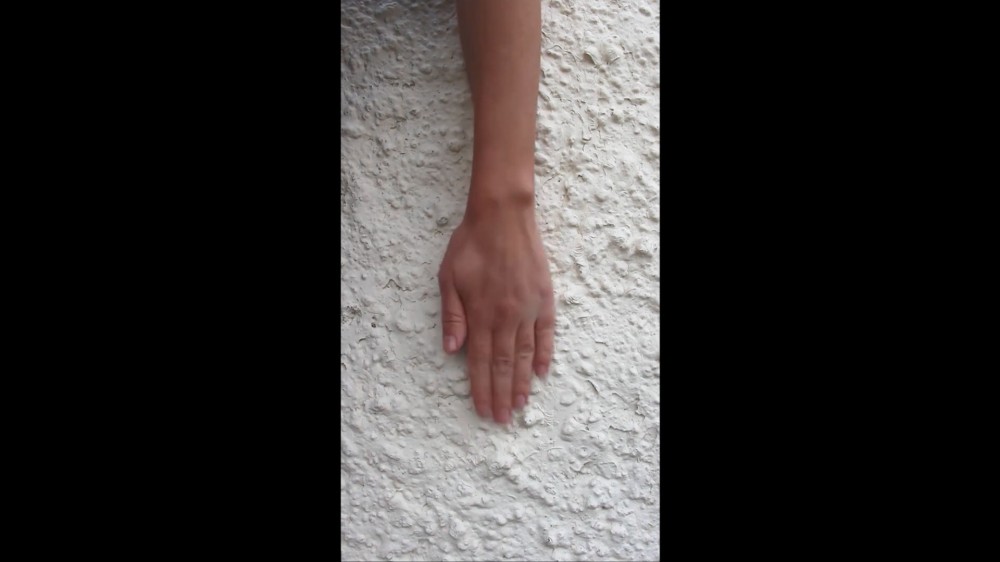

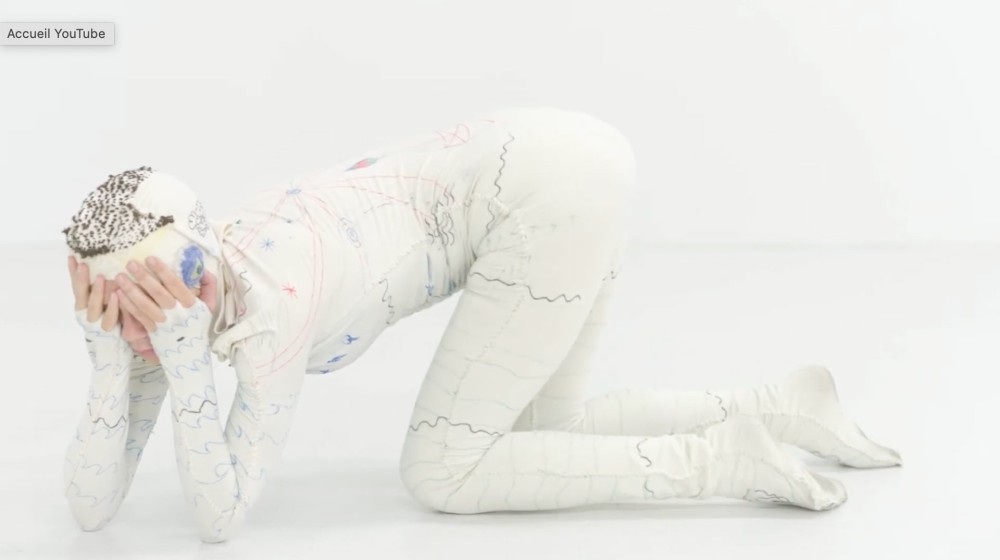
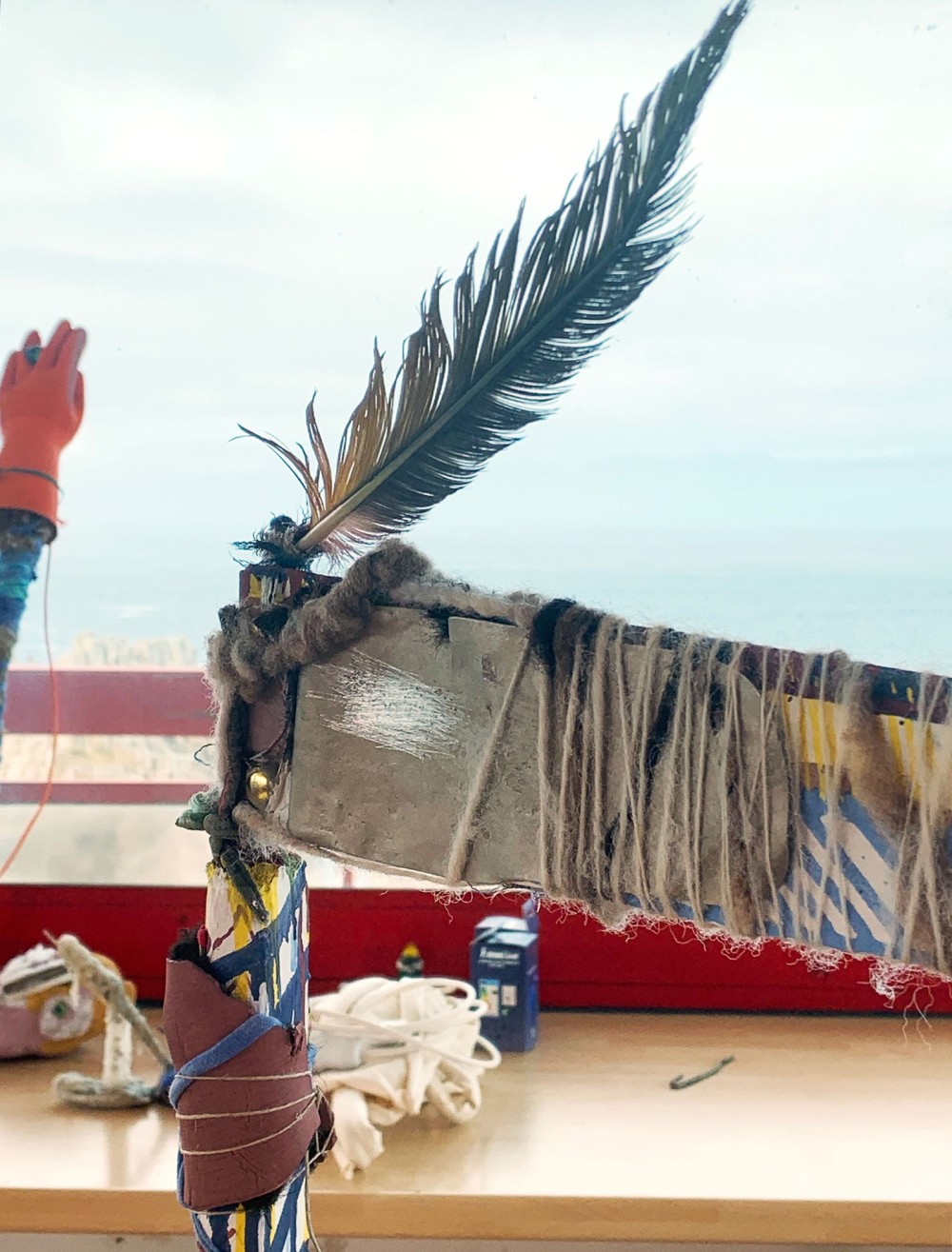

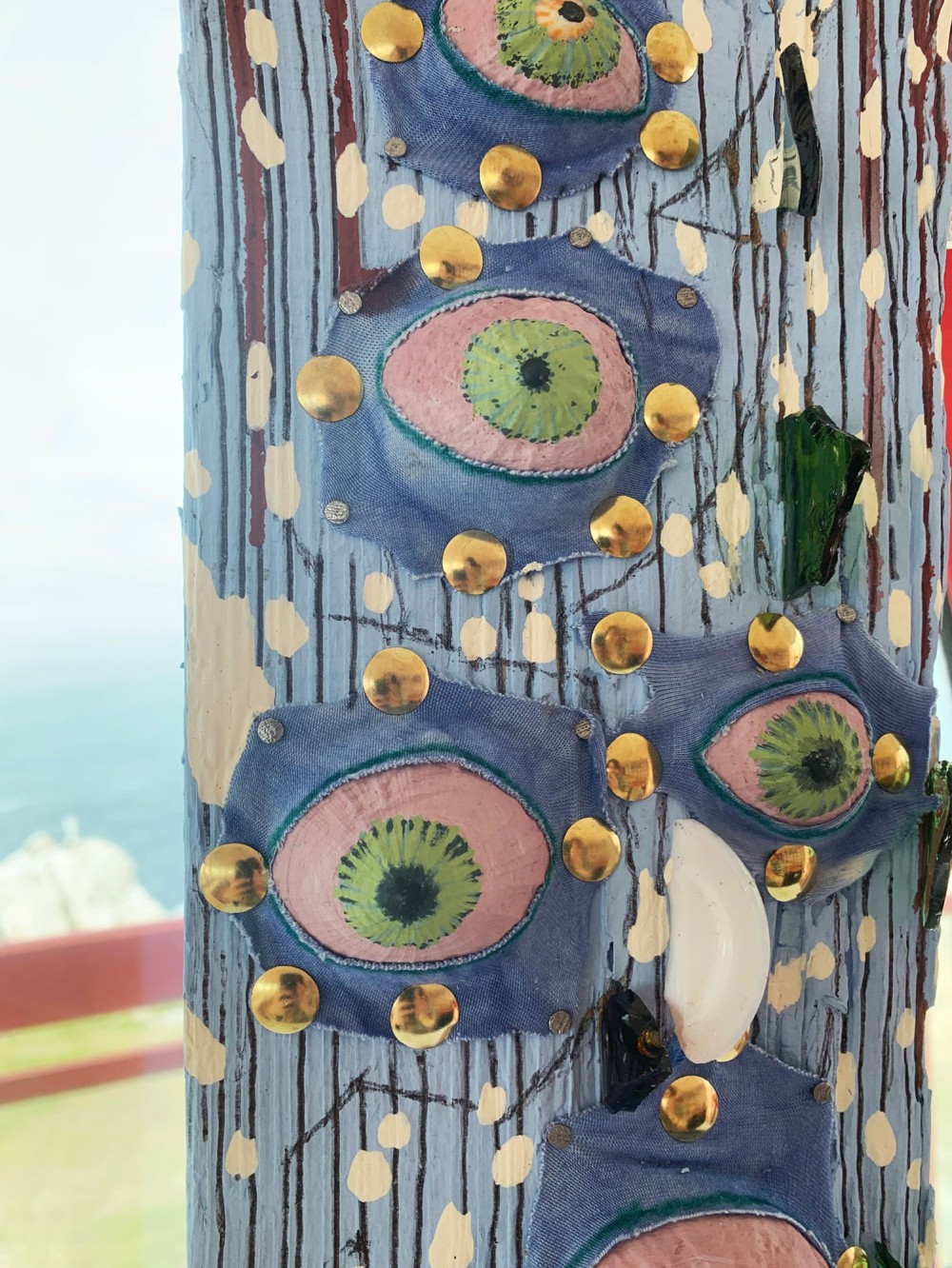
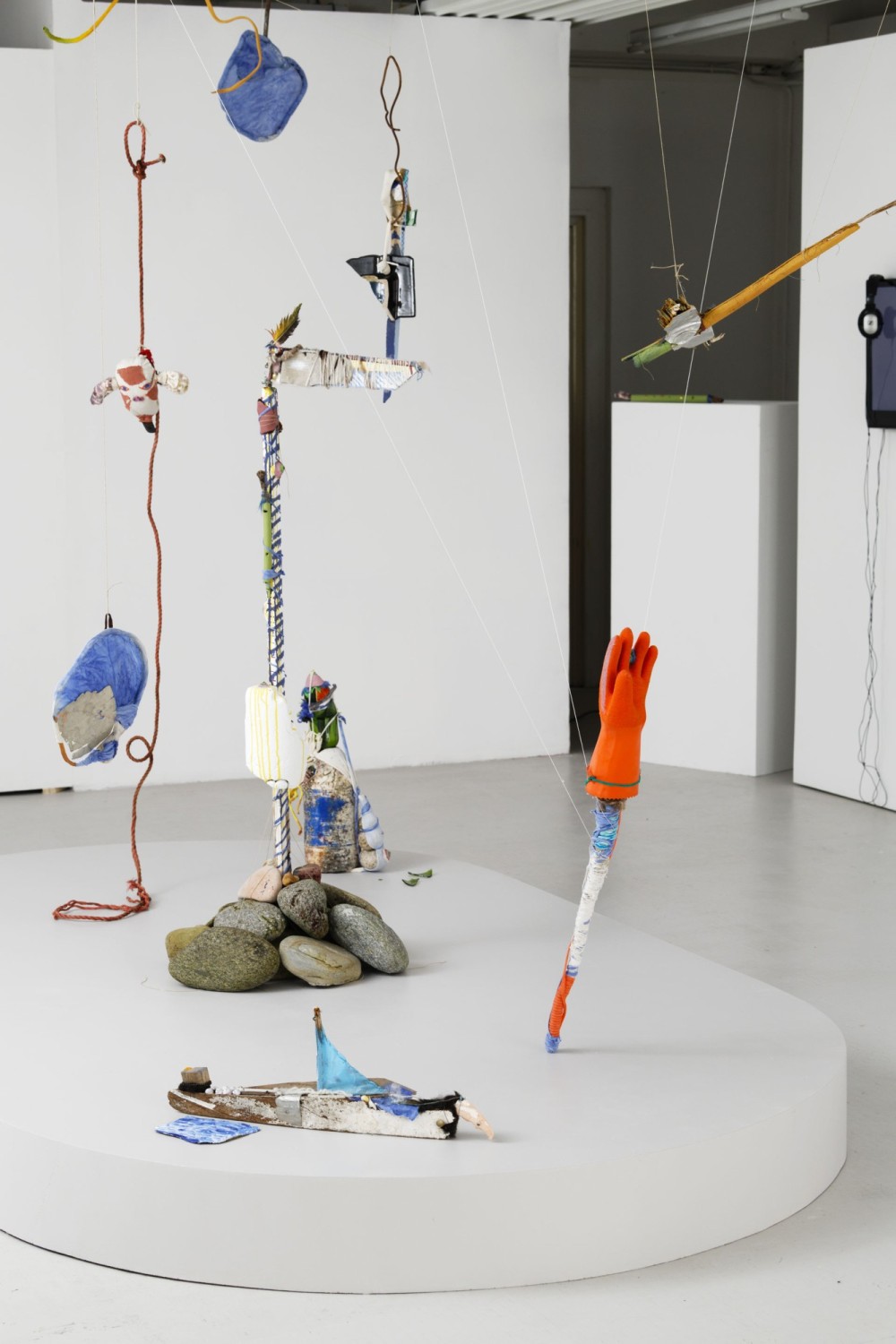
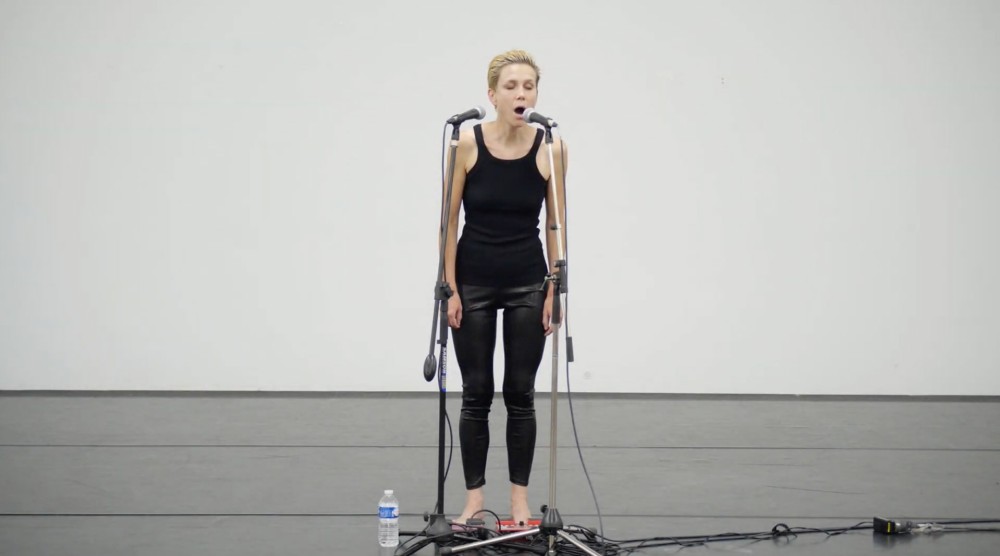
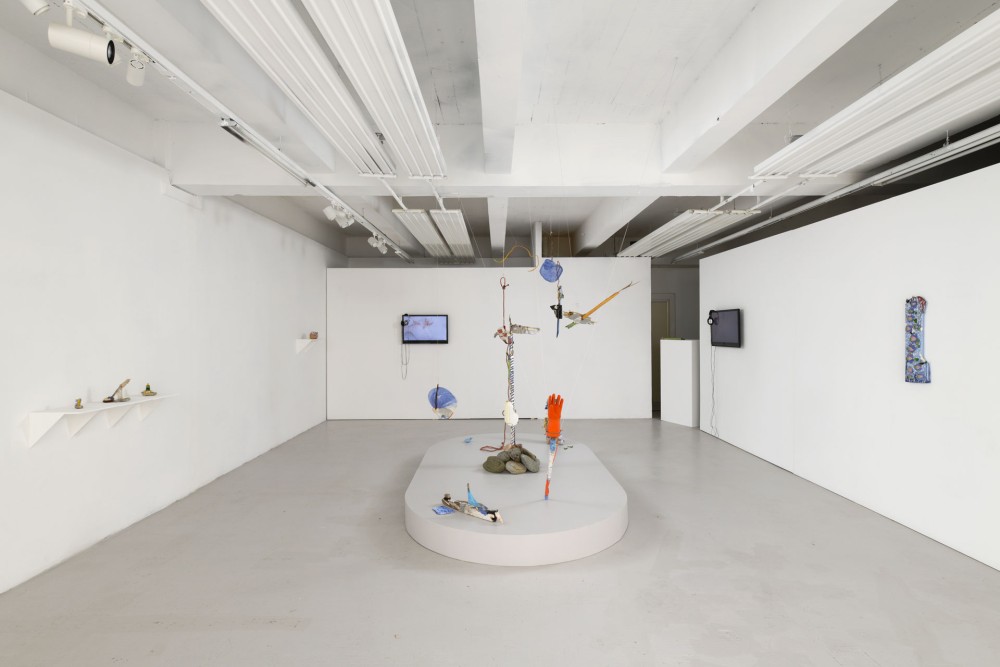
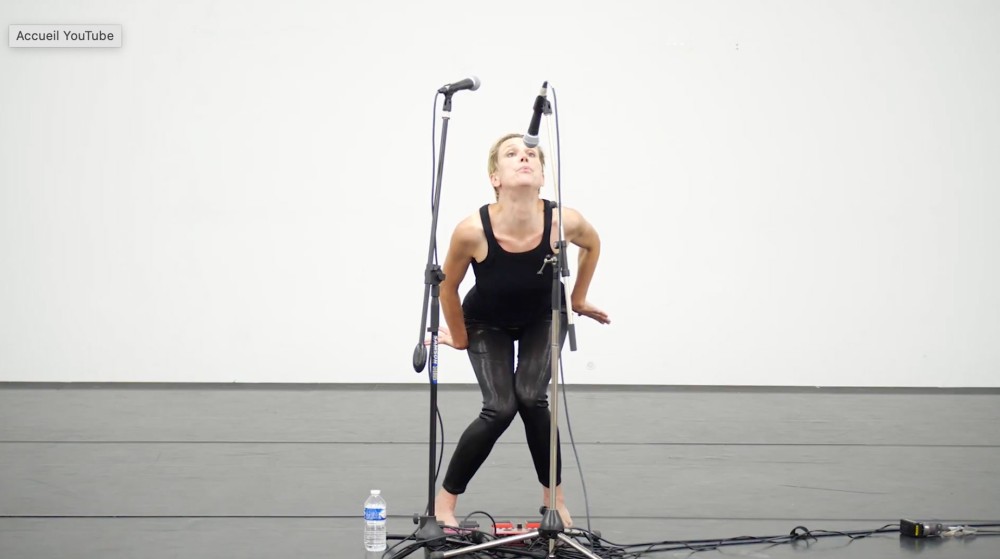
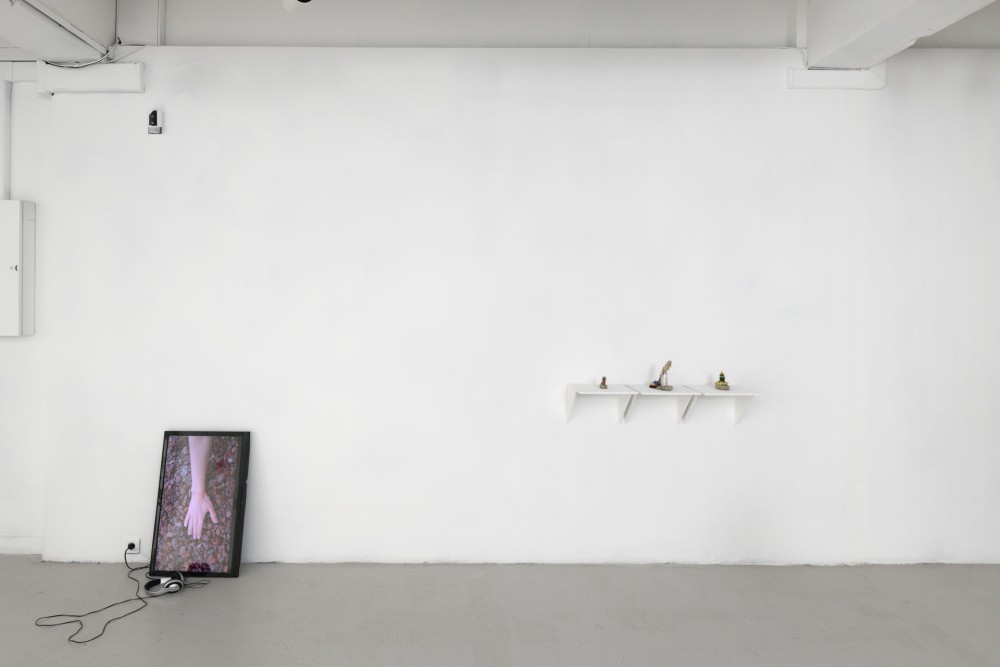
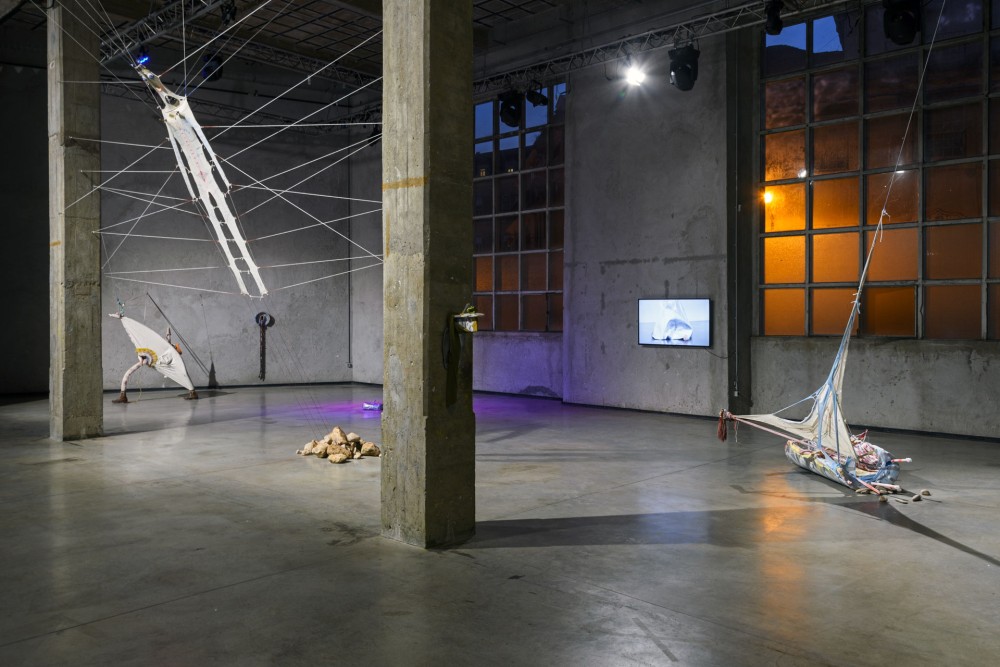

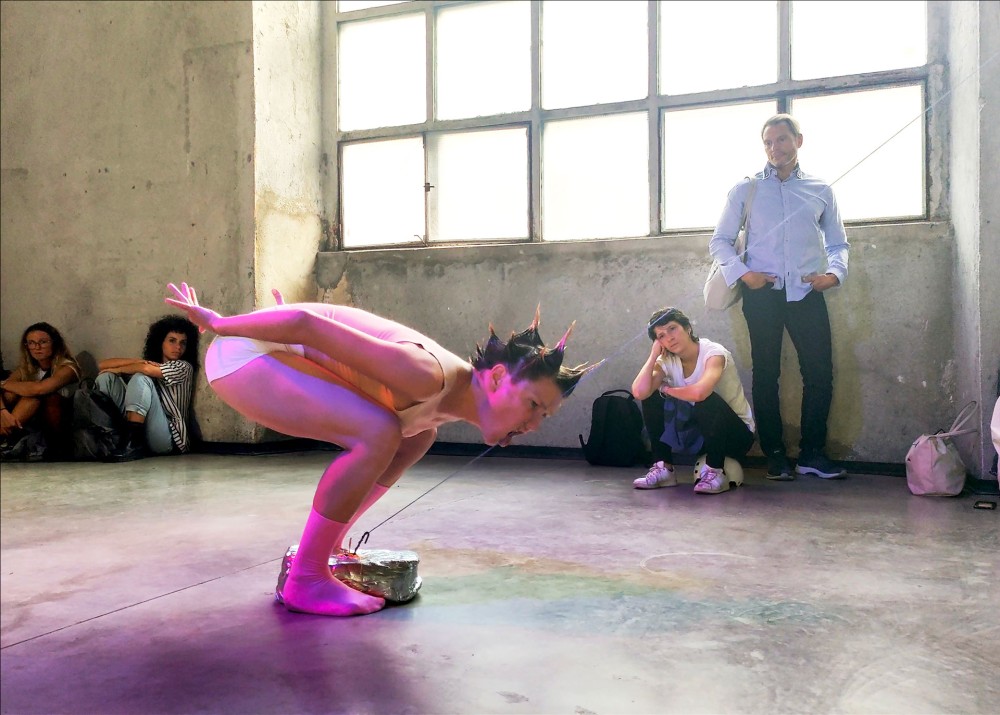
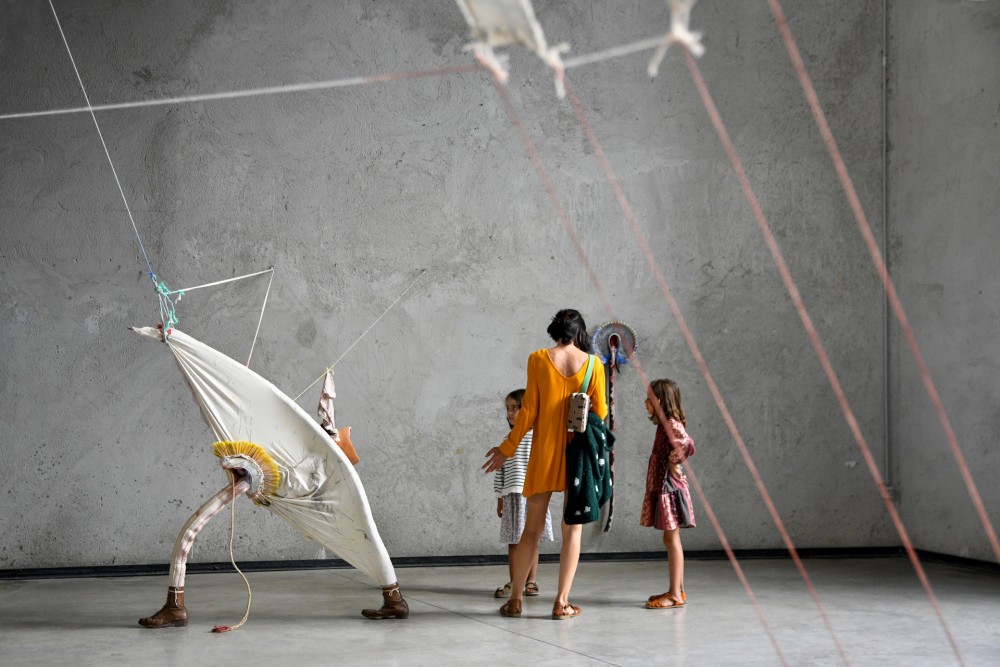
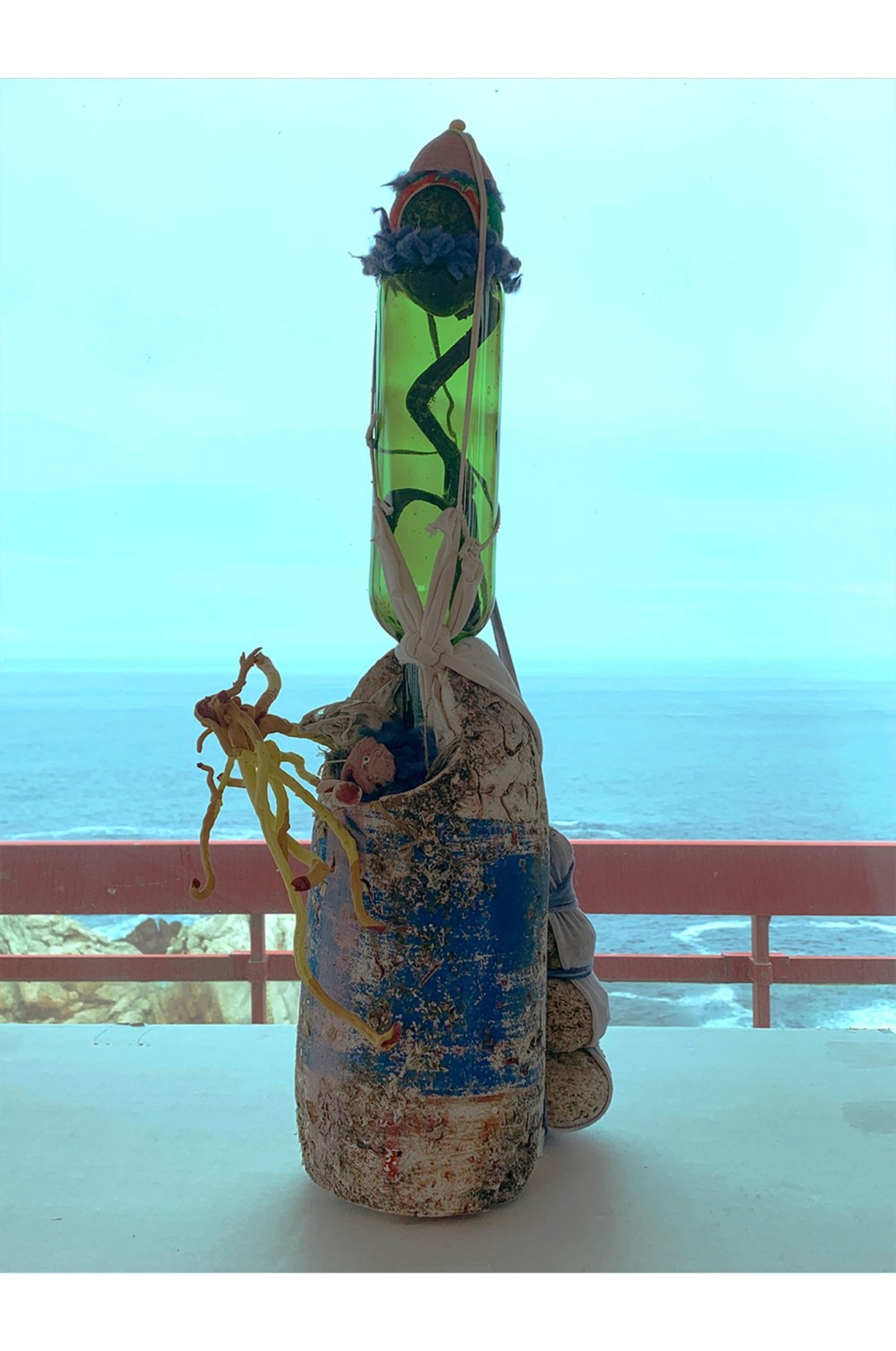
Nomad residencie #3
A traveling residency, through stages of journey and at the heart of unique contexts






















« “Thus it seems that even islands enjoy keeping company.”[1]
Like castaways, Sara Bichão and Violaine Lochu live a time apart on two Atlantic islands, near European shores. The first, landed on the island of Ouessant[2], discovers vernacular materials, local legends, the right to brie[3], and isolation, stationed in the watchroom of the Créac’h semaphore, which serves as her retreat. The second has landed on the island of São Miguel[4], in an intrinsically different context, where the swells and winds are milder and where the sea brings forth sounds from the depths.
Will they embark on a frantic journey across these island spaces in the hope of finding one another, like Werner Herzog on the ice road[5]? Will signals reach them, carried by the currents? What duality, reciprocity, or shared experiences will emerge from these journeys? A communication at a distance is thus initiated, awaiting their reunion.
T – Tic tac
W – Whale
I – Ignition
N – Necessary
I – Invert
S – Signal
L – Latitude
A – Antena
N – Noise ?
D – Daboecia Azorica
S – Silence.
It is the environment that, initially separating them, eventually engulfs them. They are consumed, phagocytized by this giant, unpredictable organism that is the maritime space, here observed, traversed, and fantasized. From the islands, they look into the distance. Their senses heightened, they search for each other, unable to remain still with their eyes fixed on the details of daily life. Instead, they face the expanding time, listen to the whales, converse with the surrounding plants, become familiar with nautical language, and explore spatiality both above and below the horizon line.
As if swept away by this time and space that seems to stretch endlessly before their eyes, Violaine Lochu and Sara Bichão return with singular experiments and a collection of sounds, signs, and forms, which they transmit to us through fabulous objects. From silence, sculptures with raw shapes and instinctive craftsmanship emerge. This body of objects produced by Sara is then activated by Violaine, who, through vocal and choreographic composition, transmits notes from the deep sea. Wearing the suit made from the watchroom of the Créac’h and carrying the writings of an oracle that reached us, this human reveals their dual reading of this lived experience.
—
[1] D.H. Lawrence, L’homme qui aimait les îles, Éditions de l’Arbre vengeur, 2021, p.17.
[2] L’île d’Ouessant est située au large de Brest (France).
[3] Le droit de brie était le droit pendant l’Ancien Régime donnant la propriété des épaves et des cargaisons des navires naufragés aux iliens. À Ouessant, il reste de coutume de déposer une pierre sur l’objet trouvé et convoité. Ainsi réservé, il reste en attente d’un prochain ramassage par son propriétaire.
[4] L’île de Sāo Miguel est située dans l’archipel des Açores (Portugal).
[5] Werner Herzog, Sur le chemin des glaces, Éditions Payot et Rivages, 2009.
Ann Stouvenel
with the complicity of
Sara Bichão et Violaine Lochu
Vocal Performance, 30 minutes, 2022, Violaine Lochu
Composed by Violaine Lochu as part of the TWIN ISLANDS project, conducted in parallel with Portuguese artist Sara Bichão, W Song explores underwater sound signals and the phenomenon of echolocation (oué colocation). This term refers to how certain animals emit sounds to navigate space and locate elements in their environment—partners, obstacles, predators, prey… Human technologies like sonar take inspiration from this principle.
During their parallel residencies, one on the island of São Miguel in the Azores (Portugal) and the other on the island of Ouessant off the coast of Brittany (France), Violaine Lochu and Sara Bichão reflect on ways to communicate at a distance. The presence of cetaceans near the Azores leads Violaine Lochu to explore their communication methods. This sophisticated system, consisting of clicks, hums, whistles, and groans, allows them to move, navigate, express sexual desire, and even indicate their position in the social hierarchy. It is vital for their individual and collective survival.
Animal echolocation, particularly that of large marine mammals, is heavily disrupted by human technologies—echo sounders, sonar, air cannons… Initially used for military purposes (such as locating enemy submarines), these technologies now primarily serve marine resource extraction (particularly hydrocarbon exploration). The sound emissions related to these technologies severely disturb the marine ecosystem. These signals directly affect animals, causing irreversible damage (to ears, swim bladders), internal hemorrhages, and spatial disorientation—phenomena that can lead to cetacean strandings.
Through the prism of her voice, Violaine Lochu attempts to convey the territorial sharing and complex interconnections between the components of the marine universe. Using an amplification device that allows her to spatialize sound and the quality of underwater recordings, she plays with the notion of interference… The vocabulary she invokes resonates with both human and non-human sounds—sperm whale clicks, blue whale songs, dolphin whistles… She creates a kind of cyborg opera that integrates the body, space, and sound.
Sara Bichão
Four days have passed since my arrival, and the way I feel is unfamiliar to me. I never thought I would experience such a blend of purity and communion between all the elements of a place.
Humans wander like sheep. The rocks are the mouths of the island; they’ve already spoken to the oldest idea I can imagine. The sea throws air at them, and the rocks (I’ve been told they have names, but you must be a local mariner to know them) sing all the time. They watch, hum, and shout.
From the land: roots, shells, excrement, flowers, mushrooms, thorny water, stones… and human traces. Everything is shaken up because the climate is wild. That is silence. If I am here, I must become part of it, or else I will fall ill.
Ouessant is an island that can be traversed in a day, but the vastness of things is overwhelming. The saliva of the waves is opaque, and they say the wind drives people mad. From a primarily natural energy source, the time the living ask for is indefinite. It seems inflation hasn’t reached this island. Connected to the sky, it was designed for the End. Every day, not rushing from sunrise to sunset. The lighthouse is on the lookout and remains available for those far away. It counts the seconds of the night to lull us to sleep.
Everything else is twilight.
A week has passed, and I feel at the heart of the world, perhaps because I have no one with whom to lose my bearings. We are so used to floating, to running, but our steps don’t draw a full circle. I wonder, while the storm rages, if this agitation is comparable to falling off a cliff, spinning.
I communicate with the stones, the roots, the shells, the excrement, the flowers, the mushrooms, the water, the thorns, the other animals… and on Sundays, I have lunch at the restaurant. I get the chance to practice my French and repeat all the words throughout the journey back to the lighthouse. To the house.
Humans are a relic, and the birds are the happiest I’ve ever seen. The sheep are clever, self-assured, and take care of their own. The dogs are dogs. The cats are cats. The chickens are dogs, and the goats are children.
The island’s independence is also a prison. The other day, I saw a man inside his house, watching outside through binoculars.
I walk, I walk, I walk, I talk, I walk.
I walk to free myself.
The tower where I live is connected to the lighthouse at the western tip of the island, at the westernmost point of France. It was once inhabited by soldiers… eyes everywhere, but no one sees inside. Only the wind now screams at me from the top floor.
The days go by, and the sun grows stronger with the light of April. The resistance has softened. Sometimes, it smells like honey and butter.
Red sun.
Red sun.
The sunset was so red that my feet were bared by granite that has existed since time immemorial. At eight in the evening, a flow of blood moves toward my pupils. It won’t be only mine. What a beautiful euphoria. It’s not vampiric because it doesn’t intend to consume, it’s like a laser that fills the internal organs with an electric redness. No one speaks a word, not even the thoughtful birds that wake me every morning at seven and accompany me until the sky splits in two.
I have with me a lit candle, a red lamp, my cell phone, and a red notebook. Eleven days and twelve nights have passed. Only the wind can speak without surprise or shame.
I may not have said it, but there are no thieves here. I struggle to forget what belongs to me and to know what belongs to someone else. Besides, the rabbits are winged figures. Dust flutters and floats, like butterflies. The surface is like an organic fabric made for walking. The limpets on the back are Venus exposed… they guide us on the paths to follow.
It’s 8 p.m., and not looking at the sun is an insult. The other day at the same time, I spotted a bird flying parallel to the horizon until I couldn’t see it anymore. I then turn in all directions, and the lighthouse doesn’t disappear. Like the moon. Here, there’s no room for sarcasm or irony: the body fluctuates to the rhythm of a daily eclipse. Eighteen days have passed.
Piercing the night by bicycle (when the wind allows)? Spurts of hope light up the overwhelming darkness. The reliefs are indistinct, and beams of light unbalance the horizon. Frustrated, my gaze follows the movement of the pedals and the blinking trail of the lighthouse. I’ve already tried filming, but from what I understand, digital tools are forbidden.
I have about a week left before I leave. I want to taste the pleasure of laughing without echoes again.
A violent storm is approaching, and to chase away the anxiety, I’ve decided to go for a walk. Today, it’s like this: where there’s shade, there’s no wind. The days have become like meals. The language no longer resonates, and my desires change. I catch a glimpse of the boat from the first day.
Goodbye.
EXHITIONS « TWIN ISLANDS»
With : Sara Bichão et Violaine Lochu
Curators : Marcel Dinahet & Ann Stouvenel (Finis terrae – Centre d’art insulaire) et Jesse James & Sofia Carolina Botelho (vaga – espaço de arte e conhecimento). En partenariat avec : Passerelle – Centre d’art à Brest (France) et Carpintarias de São Lázaro – Centro Cultural à Lisbonne (Portugal).
À Passerelle – Centre d’art contemporain à Brest, l’exposition est visible du 17 juin au 17 septembre 2022.
À Carpintarias de São Lázaro – Centro Cultural à Lisbonne, l’exposition est visible du 1er septembre au 2 octobre 2022.
**As part of the France-Portugal Season 2022, organized by the French Institute, with the support of several ministries and institutions, the event is supported by the Ministry for Europe and Foreign Affairs, the Ministry of Culture, the Ministry of Economy and Finance, the Ministry of National Education, Youth and Sports, the Ministry of Higher Education, Research and Innovation, the Ministry for Ecological Transition, the Ministry of Agriculture and Food, the Ministry of the Sea, the French Embassy in Portugal, and the network of French Alliances in Portugal. The General Commissioner for France is Victoire Di Rosa.
This event is part of a cultural and artistic cooperation framework between France and Portugal, highlighting the diversity of exchanges between the two countries through innovative and multidisciplinary projects.
with support la Mairie d’Ouessant, du Conseil départemental du Finistère, du Conseil régional de Bretagne, de la DRAC Bretagne – ministère de la Culture et de l’Institut français à Paris.
VIDÉOS
“W Song”, Violaine Lochu
Extrait de la performance, 30 min, 2022 : https://www.youtube.com/watch?v=9fbrpweyevE
Images vidéos Marcel Dinahet, Yeonjae Han
Production IAC Villeurbanne, CAC Passerelle, Studio Eole, Saison croisée France/Portugal
Curators Finis terrae FR, Vaga PT
“Twin Islands”, Violaine Lochu
Extrait de la performance, 10 min30, 2022 : https://www.youtube.com/watch?v=CZVQd6VBbks
Images vidéos Makoto Friedmann
Costume Sara Bichão
Production CAC Passerelle, Saison croisée France/Portugal
Curators Finis terrae FR, Vaga PT
“Dance Signal”, Violaine Lochu
Extrait de la performance, 2022 : https://www.youtube.com/watch?v=bmFkIufZG4g
Images vidéos Makoto Friedmann
Costume Sara Bichão
Production CAC Passerelle, Saison croisée France/Portugal
Curators Finis terrae FR, Vaga PT
”-.-.—.-“, Violaine Lochu
Extrait de la vidéo, 4min30, 2022 : https://www.youtube.com/watch?v=a5vCkH6ghCU&t=2s
Production Saison Croisée France Portugal